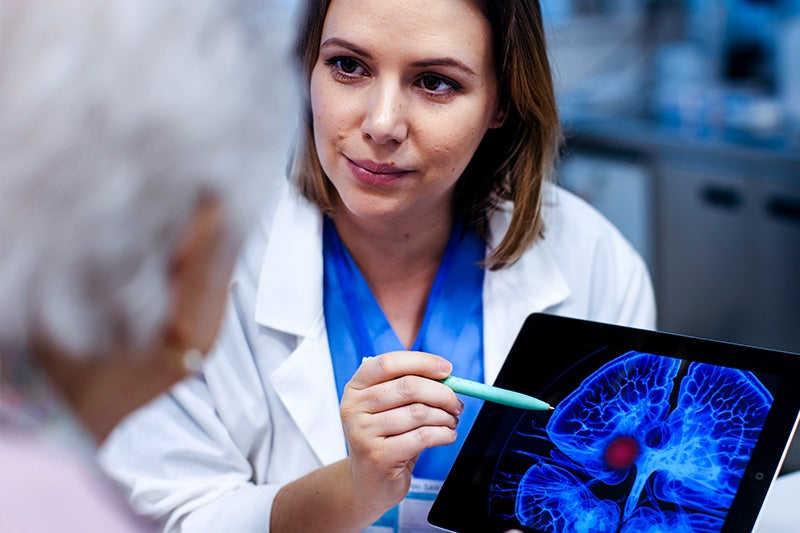What Is Cardiomyopathy? Causes, Symptoms, and When to Get Screened
September 26, 2025Your heart works hard every day, pumping life-giving blood to every part of your body. But sometimes, the heart muscle itself can become weakened or damaged a condition known as cardiomyopathy. Understanding this condition early is key to managing symptoms, protecting your heart, and maintaining your quality of life.
At St. Mary’s, we’re here to help you recognize the signs, understand your risks, and find the care you need with compassionate experts by your side.

What Is Cardiomyopathy?
Cardiomyopathy refers to diseases of the heart muscle that make it harder for your heart to pump blood effectively. Over time, this can lead to symptoms like fatigue, shortness of breath, and swelling in the legs or abdomen. If untreated, cardiomyopathy may increase the risk of heart failure or irregular heartbeats.
There are several types of cardiomyopathy, including:
- Dilated cardiomyopathy: The heart chambers enlarge and weaken, reducing pumping strength.
- Hypertrophic cardiomyopathy: The heart muscle thickens, making it harder for the heart to fill with blood.
- Restrictive cardiomyopathy: The heart muscle becomes stiff, restricting blood flow.
- Arrhythmogenic right ventricular cardiomyopathy: A rare form causing fatty or fibrous tissue to replace heart muscle, leading to arrhythmias.
Common Causes and Risk Factors
Cardiomyopathy can develop for many reasons, including:
- Genetics: Some types run in families.
- High blood pressure: Can strain and damage the heart over time.
- Heart attacks: Damage heart muscle, increasing risk.
- Chronic conditions: Such as diabetes or thyroid disease.
- Infections: Certain viral infections can inflame the heart muscle.
- Alcohol or drug use: Excessive use can weaken the heart.
- Chemotherapy or radiation: Some cancer treatments affect heart health.
- Unknown causes: In some cases, no clear cause is found.


Signs and Symptoms to Watch For
Early cardiomyopathy might not cause obvious symptoms. But as the condition progresses, watch for:
- Fatigue or weakness
- Shortness of breath, especially during exercise or when lying down
- Swelling in legs, ankles, or feet
- Irregular or rapid heartbeat (palpitations)
- Dizziness or fainting
- Chest pain or pressure
- Difficulty exercising or performing daily activities
If you experience these symptoms, especially if you have risk factors, it’s important to talk to your healthcare provider.
When to Get Screened
Early detection can dramatically improve treatment outcomes. Your doctor might recommend screening if you:
- Have a family history of cardiomyopathy or sudden cardiac death
- Experience unexplained shortness of breath or fatigue
- Have symptoms like swelling or irregular heartbeat
- Have other heart conditions or risk factors, like high blood pressure or diabetes
- Are undergoing treatments that could affect your heart
Screening usually involves a physical exam, an electrocardiogram (EKG), echocardiogram (ultrasound of the heart), or other imaging tests to assess heart function.
Managing Cardiomyopathy
Treatment depends on the type and severity, but may include:
- Medications to help the heart pump better or control symptoms
- Lifestyle changes like diet, exercise, and quitting smoking
- Devices such as pacemakers or defibrillators to manage arrhythmias
- In advanced cases, surgery or a heart transplant
Your care team at St. Mary’s will work with you to create a personalized plan focused on your heart health and overall well-being.

Take Care of Your Heart Today
Don’t ignore the signs of cardiomyopathy. Early care can help keep your heart strong and your life full. Reach out to a St. Mary’s provider for a heart health checkup and personalized guidance.



